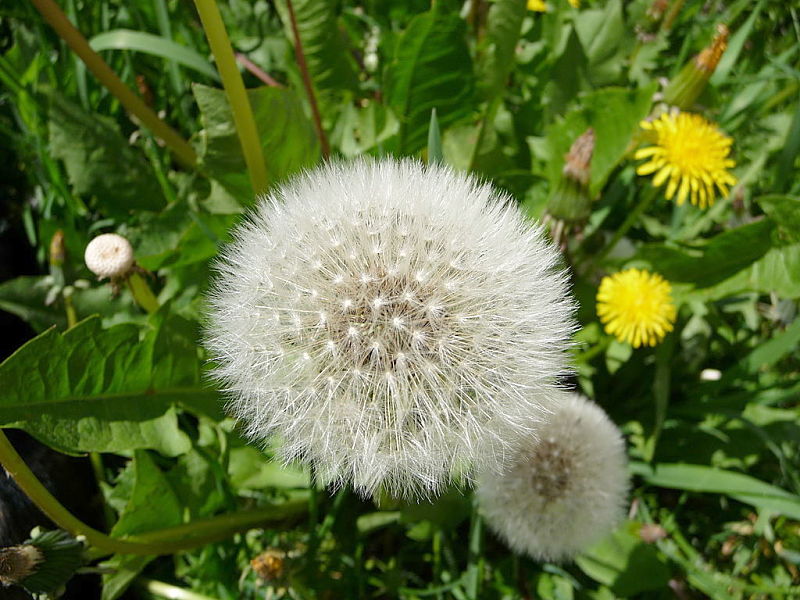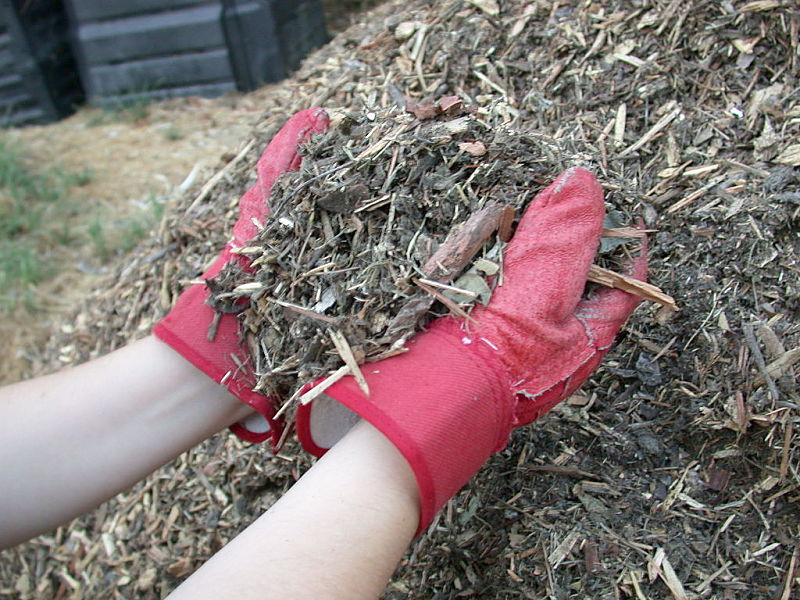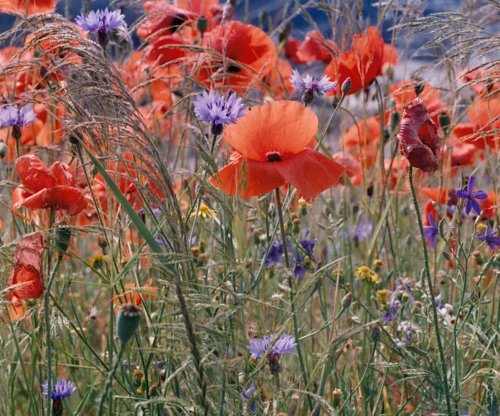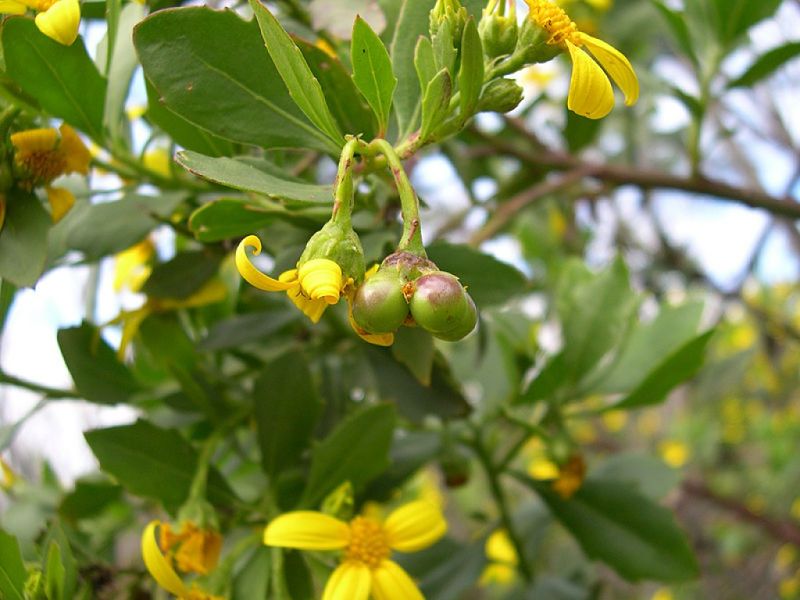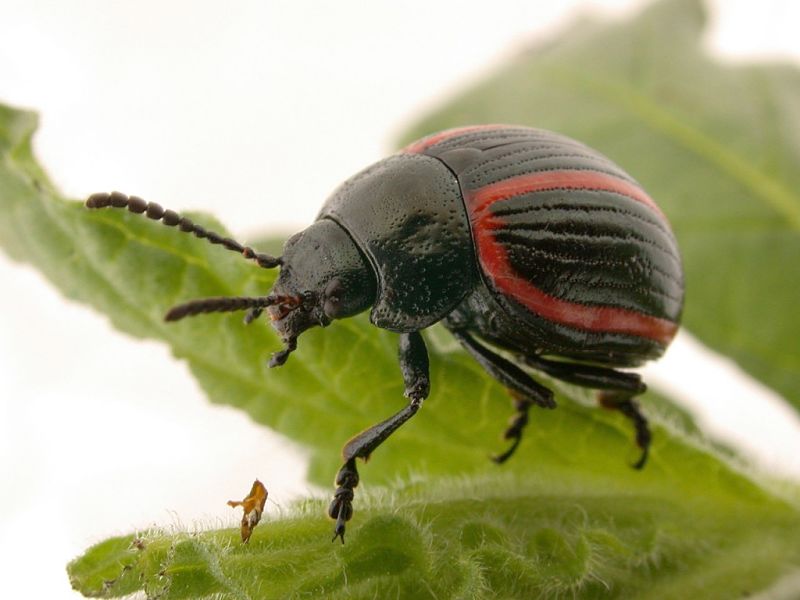How to Get Rid of Weeds Naturally in Lawns, Garden Beds and Paths
Weeds are so sneaky, so prolific, such fast growers and common scourges, how can you possibly win against them?
You dig them out, spray them turn you head away for a while and they are back choking out your garden, ruining your lawns and making your paths an eye store.
Time to get smart with some permanent natural solutions that are cheap non-toxic, effective and above all else organic and lovely.
To beat weeds you have to understand them, how they spread, and why they can out-compete the plants you want to grow. You need to know what weeds hate, to beat them.
This article discusses weeds and how to get rid of them in your garden bed, lawns, paths and around the house, not with poisonous chemicals but with natural homemade remedies and methods.
It also examines how you can get weeds working for you rather than against you.
Perhaps you may learn to love them, some day, well maybe some of them anyway.
What are Weeds? - Know Thy Enemy!
A weed is an unwanted and uninvited plant that grows where it is not wanted. There are approximately 250,000 species of cultivated plants on earth and about 8000 species (3%) are registered as declared weeds. Weeds are tough and resilient, with superior germination, growth and other properties that enable them to outcompete and crowd out your valued plants by overcrowding. Weeds deplete soil nutrients and moisture that slows the growth of the plants you want to grow. Many weeds are very prolific seeders and have superior methods for spreading their seeds. Most soils have banks of weed seeds, just lying there waiting for the opportunity to grow, triggered by your disturbing the soil, and watering when you plant seeds or seedlings into your garden. New weed seeds are added to the soils by wind and seeds that drop from flowering weeds that you fail to control in your garden. Some weed seeds can remain viable in the soils for ten years of more.
Controlling weeds can be frustrating because there are many different types present with a range of properties. Eradication and control steps can be frustrating as you may get rid of one weed, only to see others pop up. Weeds are such strong competitors. Their broad range of features and growing properties make it very hard to control them.
Biological Features of Weeds that Help them Compete
Certain features of weeds help them survive and spread:
- ability to occupy sites disturbed by human activities
- abundant seed production
- adaptation for spread
- long-term survival of buried seed
- presence of vegetative reproductive structures
- rapid population establishment
- seed dormancy
Benefits of Weeds - Yes, they do have Benefits!
Despite all their unwanted features, some weeds do provide some benefits if only for some of the time.
Some beneficial attributes include:
- add organic matter to soil
- aesthetic qualities
- food for humans
- habitat and feed for wildlife
- herbal properties
- nectar for bees
- protection from erosion
- provide employment opportunities
- provide genetic reservoir
- soil development
- soil stabilization
Guide for Effective Weed Control
Try to establish why weeds have invaded and become a nuisance. If you know the reason you can stop it happening next time.
Try to establish how the weeds got started and where they came from – soil t=you brought in, mulch, hay or straw you used for mulch etc. This may help you stop it happening again.
Start on small areas when establishing a garden. If you clear and propagate huge areas of ground and leave them empty, the weeds will grow. If you do a small area at a time and plant grass, shrubs, flowers, vegetables and trees, all these wanted plants will help to compete against the weeds. This works well if you add mulch around the plants and take other precautions to control weeds. If you have to clear large areas you may have to let the weeds stabilise the soil until you can get around to clearing them and establishing the garden.
Be prepared – the weeds will come. Expect weeds and take action to control and prevent them. Don’t ignore them or hope they won’t happen.
Look at Alternatives - There are always many ways to control and prevent weeds problem. Work out a list of strategies and, if necessary, combine them.
Work on the worse weeds first and then move onto the less serious ones. But don’t allow any of the weeds to flower and go to seed. Some weeds such as blackberry may have to be managed initially, then eradicated in the longer term.
Don't look for magic solutions - Unfortunately weed control is always hard work that requires persistent and smart action.
Natural Remedies for Controlling and Preventing Weeds Organically
Shade
Surprisingly, this is one of the most effective, but least used methods. Many weeds are adapted to full sun and are pioneering species. They don’t do well in shade. Some of the worst weeds in the world can be controlled by planting dense trees and shrubs to shade them out. Of course this may not provide a solution for controlling weeds in crops. However shade is very effective in permaculture.
Mulch
Putting a mulch blanket on your bare garden soil surrounding the plants you want to grow is one of the most effective weed control strategies. But it has to be very thick and added very early on. Otherwise the weeds will grow up through the mulch. Unfortunately mulch will often only slow the weeds down, not prevent them. Using a fork and turning the soil over under the mulch can also be effective. Mulch helps to keep the soil moist, but this can benefit the weeds.
White Vinegar
Spraying or injecting unwanted weeds with white can kill them, but it takes time and persistence. For some weeds you need to get the vinegar into the shoots, buds and roots, below ground, spray the leaves. A spraying the garden plants you want to keep.
Boiling Water
Pouring boiling water directly onto weeds can be very effective, especially on paths and individual plants. When watering why not use boiling water to kill the weeds and water the soils.
Burning and Portable Flame Devices
Weed torches and other flame devices can be very effective for some weeds. However, be warned that it will not work for plants that have their shoots and buds below ground level. Many grassland weeds are adapted to fire and being regularly cropped by grazing animals. But beware you don’t start fires. Also it can create an eyesore in the garden.
Salt, Baking Soda and Borax
Salt and salt water can works as an effective weed killer, but don’t use too much or it will damage the soil. It is probably best used on paths and rock gardens. Bakng soda and borax work in similar ways, but can damage soils. Sprinkling baking soda over weeds on paths and then spraying with vinegar or lemon juice creates and foaming action that will help to kill weeds.
Cornmeal
Cornmeal can be used to stop weeds seeds from germinating. It does not kill established plants. The corn meal does not harm the soil itself.
Weeding by Hand
Pulling weeds by hand is still the best method of controlling weeds. Its time consuming but is harmless to soils and other plants. There are many tools available to assist you with weeding.
Combined methods such as Using Vinegar, salt and soap
For more drastic action, especially on paths where soil damage is not an issue, try using a combination of the above methods. Try mixing 1 cup of salt into 4 cups of household vinegar and then adding a teaspoon of liquid soap. This works well on weeds spotted along paths.
Organic Herbicides
Spraying or injecting organic herbicides such as WeedPharm and similar products can be very effective. These products have higher strength acetic acid than vinegar (20% acetic acid versus 5% in standard vinegar). Acetic acid is biodegradable and can be washed into the soil after use. These organic insecticides can be injected into the taproots of dandelions and other weeds. Be careful that the compounds are not too acidic as they may stain or clean areas of the concrete causing marks. Do spot-tests before spraying larger areas.
